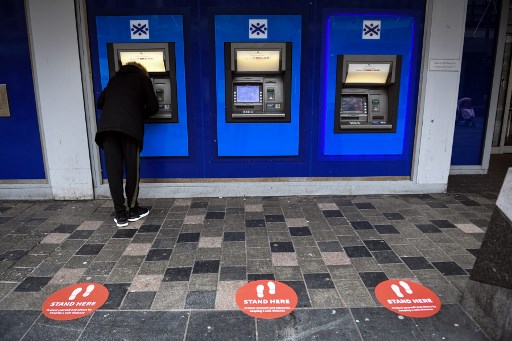
403
Sorry!!
Error! We're sorry, but the page you were looking for doesn't exist.
America to confine Iraqi banks to prevent currency smuggling to Iran
(MENAFN) The United States is working to prevent the Iraqi banking sector from helping Iran evade U.S. economic sanctions by stopping the flow of currency to Iran and using Iraq's dollar reserves as a conduit to Tehran. Washington aims to tighten its control over the movement of dollars from Iraq to Iran, Syria, and Hezbollah in Lebanon by pushing for the Central Bank of Iraq to relinquish its role as an intermediary in purchasing currency from the U.S. Instead, major American banks will handle these transactions directly.
Former Central Bank official Mahmoud Dagher revealed that the Central Bank of Iraq plans to withdraw from its intermediary role in purchasing hard currency by the end of 2024. As of now, no Iraqi bank other than the Trade Bank of Iraq (TBI) has obtained the necessary mediation from American banks. This shift is part of a broader strategy to limit the sale of dollars to American or foreign banks exclusively.
Economic expert Maitham Al-Bahadeli predicts that removing the local dollar selling platform and restricting transactions to American or foreign banks will likely lead to a significant depreciation of the Iraqi dinar against the dollar. He explained that the withdrawal of the Central Bank of Iraq from selling hard currency would negatively impact the local economy. The scarcity of dollars would drive up their price, which would be particularly problematic for Iraq's heavily import-dependent market that requires billions of dollars for trade.
Al-Bahadeli emphasized that the reduction in dollar availability would primarily harm the local economy, increasing the cost of imports and exacerbating financial challenges. The increased price of the dollar, driven by its scarcity, would put additional strain on businesses and consumers in Iraq, further complicating economic conditions in the country.
Former Central Bank official Mahmoud Dagher revealed that the Central Bank of Iraq plans to withdraw from its intermediary role in purchasing hard currency by the end of 2024. As of now, no Iraqi bank other than the Trade Bank of Iraq (TBI) has obtained the necessary mediation from American banks. This shift is part of a broader strategy to limit the sale of dollars to American or foreign banks exclusively.
Economic expert Maitham Al-Bahadeli predicts that removing the local dollar selling platform and restricting transactions to American or foreign banks will likely lead to a significant depreciation of the Iraqi dinar against the dollar. He explained that the withdrawal of the Central Bank of Iraq from selling hard currency would negatively impact the local economy. The scarcity of dollars would drive up their price, which would be particularly problematic for Iraq's heavily import-dependent market that requires billions of dollars for trade.
Al-Bahadeli emphasized that the reduction in dollar availability would primarily harm the local economy, increasing the cost of imports and exacerbating financial challenges. The increased price of the dollar, driven by its scarcity, would put additional strain on businesses and consumers in Iraq, further complicating economic conditions in the country.

Legal Disclaimer:
MENAFN provides the
information “as is” without warranty of any kind. We do not accept
any responsibility or liability for the accuracy, content, images,
videos, licenses, completeness, legality, or reliability of the information
contained in this article. If you have any complaints or copyright
issues related to this article, kindly contact the provider above.


















Comments
No comment